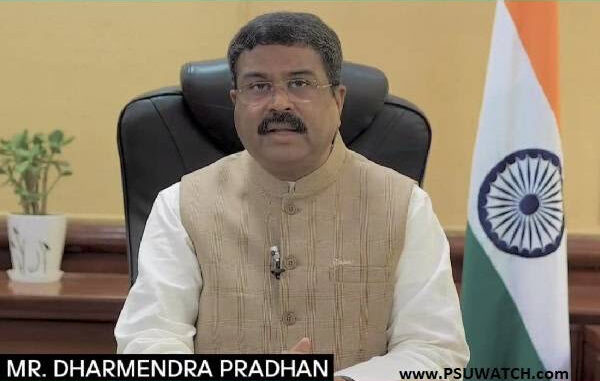
Singapore — India aims to accelerate setting up hydrogen supply chain infrastructure as the government strongly believes that the carbon-free fuel can play a key role in meeting the energy demand in a wide range of sectors in coming years, petroleum and steel minister Dharmendra Pradhan said April 15.
Speaking at the inaugural session of the conference held virtually and titled “Hydrogen Economy: New Delhi Dialogue – 2021,” Pradhan said that India would not only be pushing hydrogen in the transport sector, but would also expand its use to a range of sectors such as chemicals, iron and steel, heating and power.
“My ministry is committed to augmenting the hydrogen supply chain infrastructure in the country. Presently, as in the case of other countries, our petroleum sector is the largest producer of hydrogen for various refinery process operations. Hence, we realize the petroleum sector’s capability to produce hydrogen molecules, stored and traded as gas, making it a natural votary of this new energy form,” Pradhan said.
India in this year’s federal budget also unveiled a national hydrogen mission to accelerate plans to generate the carbon-free fuel from renewables, a strong sign the country that imports 80% of its crude oil requirements is keen to speed up the process of embracing hydrogen as a fuel source.
Landscape changing fast
“The contours of India’s energy transition are changing fast. Surely, hydrogen has great potential to emerge as a future source of energy,” Pradhan said.
He said efforts were underway to devise ways to harness it in a reliable, cost-effective and safe manner. Efforts were also underway to leverage the vast pipeline infrastructure for compressed natural gas to reduce the transportation cost of hydrogen.
“By establishing synergies with natural gas, hydrogen can be easily adopted in the energy mix without seeking major infrastructural overhauling. We are looking forward to introducing H-CNG as an intermittent technology in a big way for both automotive and domestic cooking applications,” Pradhan said.
State-run Indian Oil Corp. is working on a technology to develop hydrogen-spiked CNG, or H-CNG, which would involve partly reforming methane and CNG.
Under this process, the entire CNG of a pump station passes through a new reforming unit and part of the methane gets converted into hydrogen, with the outlet product having 17%-18% hydrogen.
IOC has set up a unit at a bus station in the Indian capital and there are plans to expand to other cities in the future.
“We are blending hydrogen with CNG for use as transportation fuel as well as an industrial input to refineries. Fifty buses in Delhi are plying on hydrogen blended with compressed natural gas on a pilot basis. We plan to scale it up in the coming months across the major cities of India,” Pradhan said.
The renewables footprint
India remains committed to environmental and climate causes with a massive thrust on deployment of renewable energy, Pradhan said. In the past six years, India has increased its renewable power portfolio from 32 GW to almost 100 GW, and the country was on track to achieve its target of 450 GW of renewable energy generating capacity by 2030, he added.
“Inclusion of hydrogen as an energy carrier in the future energy portfolio presents a unique opportunity to address emerging energy vectors, including power to gas, power to power, power to mobility, and even vehicle to grid applications,” Pradhan said.
“India, with its steadfast efforts towards leading the energy transition, backed by robust political will, is committed to engage with partners for ushering-in the hydrogen economy,” he added.
Shreerupa Mitra, executive director of The Energy Forum, told the conference in her welcome address that hydrogen as an energy carrier was again finding itself at the center of political and business parleys and had garnered unprecedented levels of attention in 2020.
“Although over the past two decades hydrogen has had some false starts, its potential utility in the decarbonization toolkit is consequential to achieve a net-zero future,” she said.



